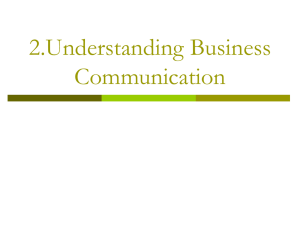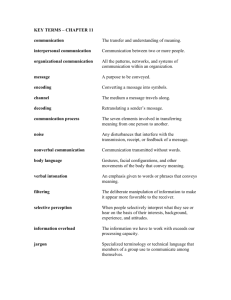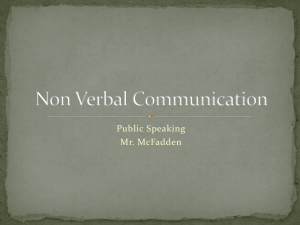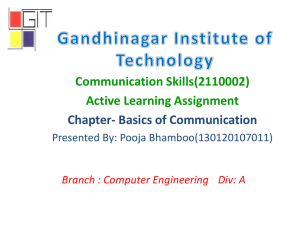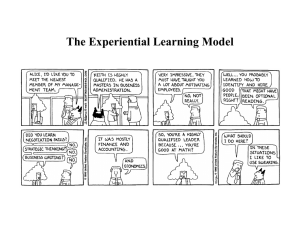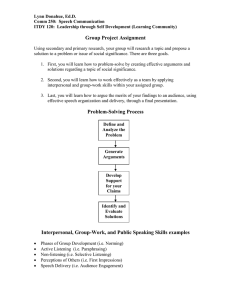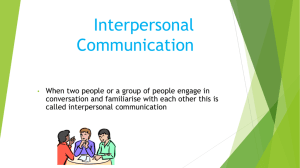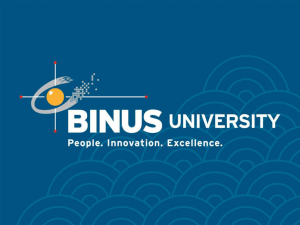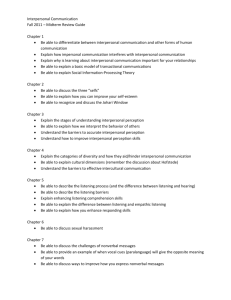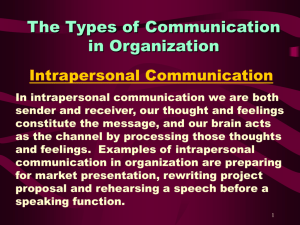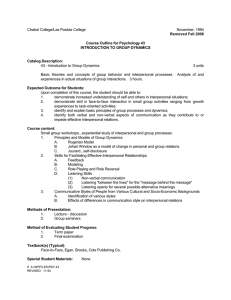A. The Communication Process
advertisement
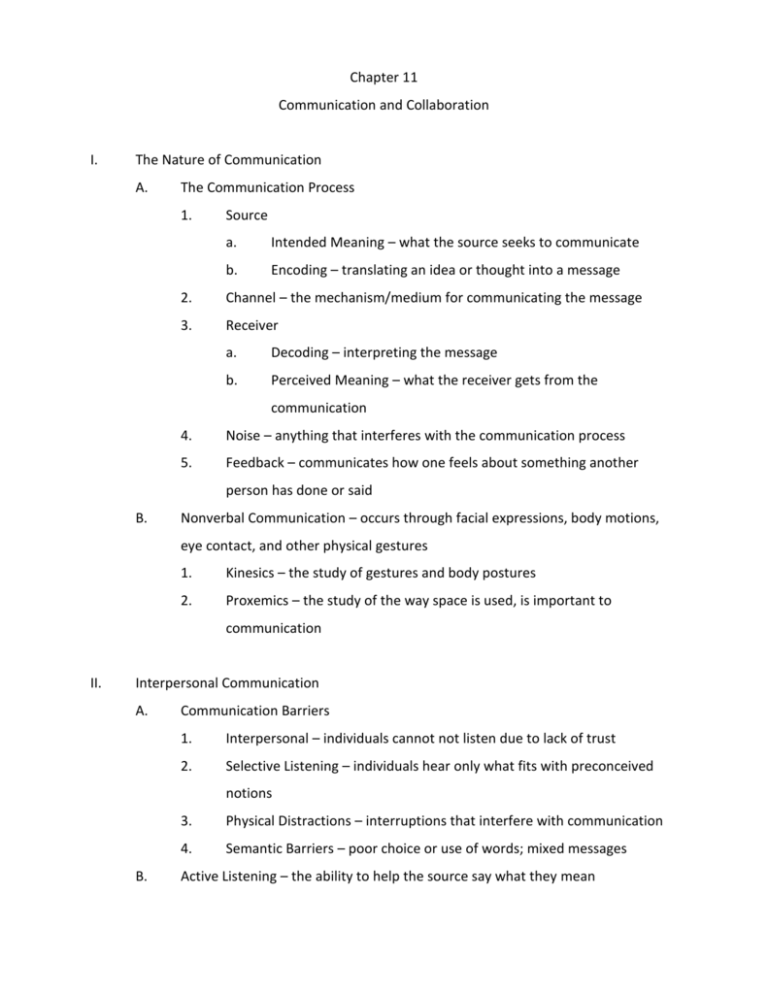
Chapter 11 Communication and Collaboration I. The Nature of Communication A. The Communication Process 1. Source a. Intended Meaning – what the source seeks to communicate b. Encoding – translating an idea or thought into a message 2. Channel – the mechanism/medium for communicating the message 3. Receiver a. Decoding – interpreting the message b. Perceived Meaning – what the receiver gets from the communication 4. Noise – anything that interferes with the communication process 5. Feedback – communicates how one feels about something another person has done or said B. Nonverbal Communication – occurs through facial expressions, body motions, eye contact, and other physical gestures 1. Kinesics – the study of gestures and body postures 2. Proxemics – the study of the way space is used, is important to communication II. Interpersonal Communication A. Communication Barriers 1. Interpersonal – individuals cannot not listen due to lack of trust 2. Selective Listening – individuals hear only what fits with preconceived notions B. 3. Physical Distractions – interruptions that interfere with communication 4. Semantic Barriers – poor choice or use of words; mixed messages Active Listening – the ability to help the source say what they mean III. Organizational Communication A. Communication Channels 1. Formal – follow the chain of command established by organization’s hierarchy of authority 2. Informal – do not adhere to organization’s hierarchy of authority 3. Channel Richness – the capacity of a channel to convey information; a rich channel offers multiple cues whereas a lean channel may offer only one; the choice of channel usually results in a tradeoff between effectiveness and efficiency B. C. [This sub-section provided in class] Effectiveness vs. Efficiency 1. Effectiveness – sent message is identical to received message 2. Efficiency – absolute minimum in terms resources (e.g., time, money) Communication Flows 1. Downward Purpose: to influence 2. Upward Purpose: to inform 3. Lateral Purpose: to coordinate

